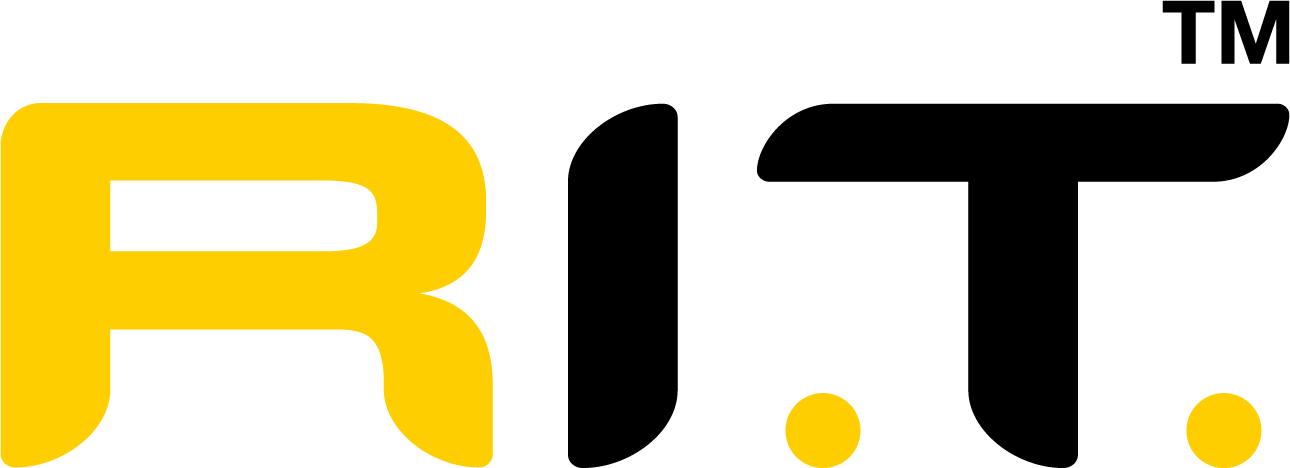August 2022 I.T. & Digital Market Update
WHAT'S BEEN HAPPENING?
Regional roundup
In Auckland, demand for talent remains high, while availability remains low. However, we have seen a shift in hiring behaviours, with more businesses focusing on the outcomes they need to meet their business objectives, as opposed to remaining hung up on specifically hiring either a permanent or contract team member.
Large pockets of employers have moved to hybrid work environments in the transition to a new normal post-Covid lockdown. We are seeing an increase in employees being required to work one or two days in the office, with some working from home still a common theme for all organisations in some form. Those candidates required to return to the office, with less flexibility, are certainly more likely to be looking at new opportunities.
In Wellington, the market continues to be tight for candidates from both a permanent and contract perspective. We’ve seen the candidate market tighten again in Wellington, with candidates saying their current employers are now responding to the hot market and focusing on retention, providing them with the right opportunities, including better flexibility and benefits, which is still increasingly important for candidates.
Despite this improved flexibility, we are also hearing of organisations who have embraced WFH asking people to return to the office 2 or 3 days a week to help increase the economic recoveries for retail and hospitality.
We see Government organisations particularly affected by the market, struggling to attract staff due to being restricted to offering mid-point range salaries to potential employees.
Permanent Demand, Contract Supply
We continue to see permanent work come in, especially in BAs, Test, and Development. In saying that, the demand is in permanent, but the supply is in the contract market.
With an increased supply in the contract market, some clients have shifted from permanent requirements to contract requirements and are open to considering either contract or permanent when hiring. Those who have taken this approach are getting the business outcomes they need, focusing on the outcome, as opposed to a fixed hiring ideal.
We have more people wanting to enter the contract market, with clients more than happy to wait four weeks for the right talent considering the current candidate shortages. Clients struggle to fill fixed-term roles as they don't offer the security of pay that permanent or contract roles do.
Financial Services Transformations
Many companies in the financial services space are hiring, with significant transformations underway, further driving demand for tech talent. The financial sector is certainly not unfamiliar with the various disruptive forces shaping the future of the industry, and some of the focuses for organisations in this sector include maximising the use of process automation, AI and machine learning, along with ensuring they are prepared and fit for purpose heading into Web3 (3rd Iteration of the World Wide Web).
Post-Covid Brain Drain
With Covid-related restrictions dropping worldwide, we are now seeing a clear increase in those leaving our shores for international opportunities. Some are leaving for travelling and delayed OEs, whereas others haven’t seen loved ones in a long time or are relocating back home at last.
Due to the flexibility of many tech roles, responsibilities can be transferred to a new location along with the talent, and global barriers have been reduced for all. Staff no longer need to resign if planning an extended trip overseas; some will retain their jobs even when relocating abroad.
Equally, international companies continue targeting NZ-based candidates with extremely large offers, tempting them away from the local market.
Whilst the ‘young’ brain drain is almost a given and will likely continue, we are seeing smart startups work hard to snap up good graduates and secure this talent before they look to move overseas.
Movement at the Borders
In terms of attracting talent into New Zealand, the overall AEV (Accredited Employment Visa) has kicked off with many organisations completing (or completed) their AEV to ensure they can hire offshore candidates.
Whilst the accreditation process has reportedly been smooth for most, since the Job Check opened on 20 June, very few of the high number of applications have been approved.
Issues facing businesses around the Job Check primarily pertain to advertised hours and wages not being listed or not matching the IEA or employers being unable to prove candidates possess the skills required for the role.
At Recruit I.T., we have a dedicated Global Talent Solutions team that works across mobilising international talent for our clients, both on and offshore, so please reach out to our experienced team for advice and guidance in this space.
The Big Sick
First, it was the big resignation, and now it is the big sick! A second Covid wave around New Zealand, compounded with a worse than usual flu season, has been affecting workplaces resulting in increased illness and absenteeism. This has had a flow-on effect on recruitment, with hiring managers impacted and unable to fast-track interviews and offers.
Diversity and Inclusion at the Forefront
New Zealand workplaces are becoming increasingly aware of the importance of diversity and inclusion in the workplace and implementing better values, policies and initiatives to support their employees in this space.
As well as better initiatives to support gender balance and fair hiring practices, we are also seeing innovative and new policies supporting the LGBTIA+ community, such as special leave for those transitioning.
The Government recently announced Te Mahere Whai Mahi Wāhine Women’s Employment Action Plan, launched on 30 June 2022 by Minister for Women Hon Jan Tinetti – to support all women in Aotearoa to fulfil their potential.
Employers Adjusting Hiring Practices
We are seeing an increase in our customers moving quickly to make offers and working to ensure their recruitment and offer processes are as smooth and effective as possible. As a result, we have seen a lot less candidates drop off during the offer stages.
More and more employers are stepping up and offering candidates the salary they are asking for, rather than waiting around and getting in a bidding situation where offers are being made back and forth.
This comes down to the continual dialogue we’ve been having with our valued customers around the market and ensuring we continue to advise them on best practices to ensure they are positioned to capture top talent.
One area we still identify as a weakness is where clients are hampered by only being able to offer fixed-term to candidates rather than permanent or contact. With so much choice in the market, a fixed-term offer simply does not hold enough appeal for most candidates.
Improved recruitment practices must also extend into onboarding and inductions, as these are incredibly important in setting a platform for success for a new employment relationship and getting value from your investment in recruitment. Candidates who have not had a great experience in their first three months are not waiting around and may already be considering leaving.
With such a tight talent market, retention is still critically important, and as employers recognise the importance of adjusting salaries and benefits to hold on to valued employees, we are ensuring we advise candidates to speak with their current employers before looking elsewhere, especially if their primary motivator is salary.
CONTRACTOR CHAT
The contractor market remains extremely buoyant, and contractors are essentially able to pick and choose who they want to work for, as they are so heavily in demand.
Some organisations that are stubbornly sticking to paying lower hourly rates are losing contractors to others offering higher rates – and we are still seeing many contractors opting out and finishing their contracts early for more lucrative offers.
Due to contract rates being the highest in the market for years, we are also seeing more contractors taking a break between contracts rather than working for an entire year.

With so much choice, candidates are also more discerning and more interested in working on meaningful projects that provide a feel-good factor for them.
Due to the competitive contractor landscape – especially in Wellington – some contractors are being offered extensions through until June next year, with clients looking to lock in the talent early rather than risk missing out and putting business projects and priorities at risk.
TOP TALENT REQUIREMENTS
As expected with the current market conditions, demand is high across all role and skill areas. We are seeing specific tech stacks being asked for, with some clients not being able to train in certain areas. We are still seeing an ongoing, significant demand in data, test, BA’s and development.
- Business Analysis – As always, the BA market continues to be buoyant, with candidates constantly in demand.
- Security – a continued emphasis here, particularly within the Government space
- Architecture and Testing – both permanent and contract candidates are in high demand in these particularly tight markets.
- Test Automation – with more and more clients trying to automate as much as possible, experienced test automators are sought after.
- Development – it is not slowing down in terms of dev requirements, with requests most typically across Java, .Net, and various JavaScript frameworks.
LOOKING AHEAD
In the Government Space
New budgets came into effect on 1 July, so government organisations have begun kicking off new projects – particularly after the budget announcement. The Government has committed to health – with Health New Zealand coming into operation on 1 July. Education and Transport will also benefit from more investment.
Large programmes will look to increase their headcount, and some agencies will need to factor in replacements where candidates have indicated they are moving to increase their pay due to the salary freeze in Government.

Lingering Covid Impacts
Orange light settings seem set to stay put for the foreseeable future, despite many companies hoping for green so they could return to ‘normal’ or full operations. Many large organisations are still operating on bubble systems or rosters.
This, combined with the ‘new normal’ of flexible and remote working, means more of our clients are looking at new and improved ways for teams to collaborate – both online and in person – as some businesses are finding the cultural aspects of working together in a post-Covid world challenging, which can also result in more staff turnover.
Events Return
We are seeing the slow return of large-scale events in the tech industry, with the Hi-Tech Awards held early August at TSB Arena in Wellington, and the CIO Conference and Awards scheduled for November 2022 at new Christchurch Convention Centre – Te Pae.
We expect to see more summits and tech-focused events continue to fill the calendar throughout the end of 2022 and into 2023, as the industry gets used to socialising and celebrating together again. Check out this guide to upcoming events.
A FINAL NOTE FROM OUR DIRECTORS
Employers must ensure they are not complacent and continue to think innovatively, perhaps even globally, to ensure they can remain competitive in this challenging market.
At the same time, focusing on meeting your existing teams' needs and refining retention strategies remains important, as you can be assured that even your newest recruits will be targeted by both New Zealand and offshore companies.
As always, we continue to nurture our long-standing relationships and talent pools to ensure that despite the tight market, we are delivering the best recruitment solutions for our clients and candidates.
If you have any questions, or would like any advice regarding hiring talent for your team or business in the current market, reach to to Maree, Chris, or any of our team members for a confidential discussion.
Connect with us!




